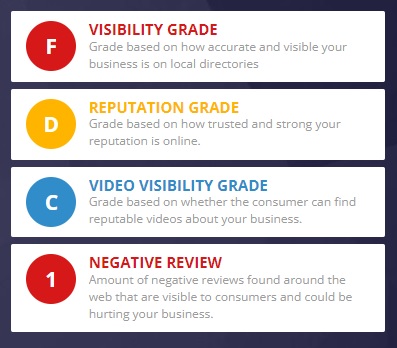Building a successful law practice in today’s fast-paced digital world is like trying to construct a skyscraper in a constantly shifting landscape. It’s challenging, exciting, and requires a blend of traditional wisdom and cutting-edge strategies. Gone are the days when hanging a shingle and waiting for clients to walk through the door was enough.
Now, you’re not just competing with the firm down the street, but with every legal website, blog, and social media savvy attorney out there. But don’t let that intimidate you. With the right approach, you can turn these challenges into opportunities whether you’re a fresh-faced graduate ready to make your mark or a seasoned attorney looking to revitalize your practice.
This guide will help you navigate the complexities of modern legal entrepreneurship. We’ll explore everything from crafting a rock-solid business plan to mastering the art of digital marketing. You’ll learn how to leverage technology to streamline your operations and how to build an online presence that attracts clients like a magnet.
And don’t worry, we won’t forget the timeless principles that have always been at the heart of successful law practices. So, buckle up and get ready for a journey that’s part legal education, part business school, and part tech boot camp. By the end, you’ll have a roadmap to not just survive but thrive in the competitive world of law. Let’s turn that dream of a thriving practice into a reality, shall we?
Laying The Foundation For Building A Successful Law Practice

When building a successful law practice, create a solid business plan with clear goals, and specialize in a niche to stand out. This foundation sets the stage for long-term success and fulfillment
To build a successful practice, you need to start with a rock-solid foundation. Think of it as the legal equivalent of constructing a skyscraper – without a proper base, even the most impressive structure will topple.
The Foundation: let’s talk about your business plan. This isn’t just some dusty document you create and forget about. It’s your roadmap, your North Star, your secret sauce for success.
Start by defining your firm’s mission and vision. What gets you fired up about practicing law? What impact do you want to make? These aren’t just feel-good questions – they’ll guide every decision you make moving forward.
Setting clear, measurable goals. Want to take on 50 new clients this year? Great! Want to increase revenue by 30%? Fantastic! Just make sure your goals are SMART: Specific, Measurable, Achievable, Relevant, and Time-bound.
And don’t forget to outline your financial projections and funding needs. Building a successful law practice isn’t cheap, so know your numbers inside and out.
Defining Your Niche Or Speciality. In today’s crowded legal market, being a jack-of-all-trades often means being a master of none. Narrowing your focus can seem scary – after all, aren’t you limiting your potential client base?
But here’s the truth: specializing can actually help you stand out and attract more clients. Think about it. If you needed heart surgery, would you go to a general practitioner or a cardiac specialist? The same principle applies to law.
By honing in on a specific area – whether it’s intellectual property, family law, or environmental regulations – you position yourself as the go-to expert in that field. To find your niche, start by identifying your passions and strengths.
What areas of law do you genuinely enjoy? Where have you had the most success? Don’t be afraid to get creative – maybe you’re the go-to lawyer for tech startups, or perhaps you specialize in legal issues facing the craft brewing industry.
Remember, building a successful law practice is about playing to your strengths and creating a unique value proposition. By developing a comprehensive business plan and carving out your niche, you’re not just laying a foundation – you’re setting the stage for long-term success and fulfillment in your legal career.
Building Your Online Presence: Your Digital Storefront

In today’s digital age, your online presence is often the first impression potential clients have of your law practice. It’s like your virtual handshake, your digital business card, and your 24/7 salesperson all rolled into one.
This is the number one area I see most professionals fail, not just attornies. So Let’s get to it.
Create a Professional Website
Think of your website as your firm’s digital headquarters. It needs to be more than just pretty – it should be a lead-generating powerhouse. Start with a clean, professional design that reflects your brand.
But don’t stop there. Your site should be a treasure trove of information for potential clients, showcasing your expertise and answering their burning questions.
Remember, mobile-friendliness isn’t just nice to have – it’s essential. More people are searching for lawyers on their phones than ever before. If your site isn’t mobile-responsive, you might as well be invisible to a huge chunk of potential clients.
Speed also Matters: If you have a shared hosting account your website could be slowed down. This can cause excessive bounce rates which will hurt your website’s overall standing in the search engines. This will tell the search engines your site isn’t important enough to stand out in the search results.
Optimize for Search Engines (SEO)
 Now, having a great website is one thing, but making sure people can find it is another ball game entirely. That’s where SEO comes in. Think of it as the GPS that guides potential clients to your digital doorstep.
Now, having a great website is one thing, but making sure people can find it is another ball game entirely. That’s where SEO comes in. Think of it as the GPS that guides potential clients to your digital doorstep.
Start by researching search terms relevant to your practice areas. What terms are people using when they need a lawyer like you? Sprinkle these keywords naturally throughout your site’s content.
But don’t go overboard – Google’s not a fan of keyword stuffing, and neither are your readers.
Local SEO is your secret weapon. Most people looking for a lawyer want one nearby. Make sure your firm’s name, address, and phone number (NAP) are consistent across all online platforms. Get listed in local directories and encourage satisfied clients to leave reviews.
Leverage Content Marketing
Content is king, and in the legal world, it’s your chance to show off your expertise. Start a blog and regularly post about topics your potential clients care about. Explain complex legal concepts in plain English.
your expertise. Start a blog and regularly post about topics your potential clients care about. Explain complex legal concepts in plain English.
Share your insights on recent legal developments. But don’t limit yourself to just written content. Videos, infographics, and podcasts can all be powerful tools in your content marketing arsenal.
The key is to provide value. When you consistently share helpful, insightful content, you’re not just building a successful law practice – you’re establishing yourself as a trusted authority in your field. Remember, building a strong online presence is an ongoing process.
It takes time, effort, and patience. But with persistence and the right strategies, your digital presence can become one of your most powerful tools in attracting clients and growing your practice.
If You Need Help With This GO HERE To Schedule Your Free 1-On-1 Consult
Need Help? Schedule A Free One On One Consult
We know that this may seem complicated. But you do what you do best (practice Law) and we do what we do best (creating and optimizing digital assets)
So You Can Concentrate on What You do Best.
Harnessing the Power of Social Media: Your Digital Networking Tool
In the quest to build a successful law practice, social media isn’t just a buzzword – it’s a powerful tool that can amplify your voice, showcase your expertise, and connect you with potential clients. Let’s explore how to make social media work for your law firm without getting lost in the digital noise.
Choose the Right Platforms
 Not all social media platforms are created equal, especially when it comes to legal marketing. It’s like choosing the right venue for a networking event – you want to be where your potential clients are hanging out.LinkedIn is often the go-to platform for professionals, including lawyers.
Not all social media platforms are created equal, especially when it comes to legal marketing. It’s like choosing the right venue for a networking event – you want to be where your potential clients are hanging out.LinkedIn is often the go-to platform for professionals, including lawyers.
It’s perfect for sharing industry insights, connecting with other legal professionals, and establishing your authority in your field. But don’t discount platforms like Facebook and Twitter.
They can be excellent for humanizing your brand and engaging with a broader audience.
The key is to choose quality over quantity. It’s better to have a strong presence on one or two platforms than a weak presence on all of them. Remember, building a successful law practice isn’t about being everywhere – it’s about being where you can make the most impact.
Develop a Content Strategy
Once you’ve chosen your platforms, it’s time to figure out what to say. Your social media content should be a mix of educational, promotional, and personal posts.
Share legal tips, comment on recent court decisions, or give a behind-the-scenes look at your firm. The goal is to provide value while showcasing your expertise.
But here’s the trick – don’t make it all about the law. Share content that shows the human side of your practice. Did your firm participate in a local charity event? Share it! Did you just win a big case? Celebrate it (within ethical guidelines, of course)!
Remember to engage with your followers. Respond to comments, participate in discussions, and be an active member of your online community. Social media is a two-way street, and engagement is key to building trust and relationships.
Consistency is crucial in your social media efforts. Set a realistic posting schedule and stick to it. Use tools like Hootsuite or Buffer to schedule posts in advance if needed. But don’t let automation replace authenticity – your followers can tell the difference.
Don’t forget to measure your results. Keep an eye on which posts get the most engagement and adjust your strategy accordingly. Building a successful law practice through social media is an ongoing process of learning and adapting.
Remember, social media isn’t just about promoting your services – it’s about building relationships, establishing trust, and positioning yourself as a go-to expert in your field. With the right approach, it can be a powerful tool in your law firm’s growth strategy.
If You Need Help With This GO HERE To Schedule Your Free 1-On-1 Consult
Building and Managing Your Online Reputation: Your Digital Credibility
In the journey of building a successful law practice, your online reputation is like your digital credit score. It can open doors to new opportunities or slam them shut faster than you can say “objection overruled.”

Let’s dive into how you can cultivate and maintain a stellar online reputation that attracts clients and builds trust.
Encourage and Manage Reviews
In today’s digital age, potential clients often turn to online reviews before picking up the phone to call a lawyer.
It’s like asking for recommendations, but on a much larger scale. So, how do you ensure your firm shines in the review spotlight?
First, don’t be shy about asking satisfied clients to leave reviews. Timing is key here – catch them when they’re basking in the glow of a successful case resolution. Make it easy for them by providing direct links to your Google My Business or Avvo profiles.
But here’s the kicker – you need to manage these reviews actively. Respond to every review, good or bad. For positive reviews, a simple thank you can go a long way.
For negative ones, respond professionally and offer to take the conversation offline to resolve any issues. Remember, how you handle criticism speaks volumes about your practice.
Monitor Your Online Presence
Building a successful law practice in the digital age means keeping a watchful eye on your online presence. It’s like being your own PR team, constantly on the lookout for mentions of your firm.
Set up Google Alerts for your name and your firm’s name. This way, you’ll know immediately if someone’s talking about you online. But don’t stop there – regularly Google yourself and your firm. You might be surprised at what you find.
If you spot any potential reputation issues, address them promptly and professionally. Maybe there’s a negative article or a disgruntled client venting on a forum. Don’t ignore it – tackle it head-on. Respond calmly and professionally, offering to resolve any issues offline.
Remember, your online reputation isn’t just about damage control – it’s about actively shaping the narrative around your practice. Share your successes (within ethical guidelines, of course), contribute to legal discussions online, and showcase your expertise through thought leadership pieces.
Building and managing your online reputation is an ongoing process. It requires vigilance, quick thinking, and a commitment to excellence in all your online interactions. But the payoff is worth it – a strong online reputation can be your most powerful asset in attracting clients and building a thriving law practice.
In the end, your online reputation is a reflection of your real-world practice. By focusing on providing excellent service and actively managing your digital presence, you’re not just building a successful law practice – you’re creating a trusted brand that stands out in the crowded legal marketplace.
If You Need Help With This GO HERE To Schedule Your Free 1-On-1 Consult
Measuring Success and Adapting: Your Roadmap to Growth
In the journey of building a successful law practice, measuring your progress and adapting your strategies is like having a GPS for your firm’s growth. Let’s dive into how you can use data to steer your practice towards success and stay nimble in a changing legal landscape.
Track Key Performance Indicators (KPIs)
Think of KPIs as your firm’s vital signs. They tell you whether your practice is thriving or if it needs a check-up. But here’s the kicker – not all KPIs are created equal. You need to focus on the ones that truly matter for your specific practice.For instance, if you’re aiming to build a high-volume personal injury practice, you might want to keep a close eye on your client acquisition cost and conversion rate. On the other hand, if you’re running a boutique corporate law firm, your revenue per lawyer and client retention rate might be more crucial.Some essential KPIs to consider include:
- Utilization rate: Are your lawyers spending their time efficiently?
- Realization rate: Are you actually collecting what you bill?
- Client satisfaction score: Are your clients happy enough to refer you?
- Marketing ROI: Is your advertising spend actually bringing in clients?
Remember, the goal isn’t to drown in data, but to gain actionable insights. Choose KPIs that align with your firm’s goals and give you a clear picture of your progress in building a successful law practice.
Continuously Refine Your Strategy
In today’s fast-paced legal world, standing still is the same as moving backward. You need to stay on your toes, ready to pivot when necessary. This means regularly reviewing your KPIs and adjusting your strategies accordingly.
Did your latest marketing campaign fall flat? Maybe it’s time to try a new approach. Is your client satisfaction score dipping? It might be time to reassess your client’s communication practices.
But don’t just react to the numbers – stay proactive by keeping an eye on industry trends. Subscribe to legal tech blogs, attend conferences, and network with other successful attorneys. The legal landscape is constantly evolving, and staying ahead of the curve can give you a significant competitive advantage.
Remember, building a successful law practice isn’t a destination – it’s a journey. By consistently measuring your performance and adapting your strategies, you’re not just surviving in the legal world – you’re thriving and growing.
So, keep your finger on the pulse of your firm’s performance, and don’t be afraid to change course when the data points you in a new direction. After all, the most successful law practices are those that evolve with the times while staying true to their core values and goals.
If You Need Help With This GO HERE To Schedule Your Free 1-On-1 Consult
Building a Successful Law Practice: Your Path to Legal Excellence

As we’ve explored, building a successful law practice in today’s digital age requires a multifaceted approach.
From laying a solid foundation with a comprehensive business plan and niche specialization to crafting a powerful online presence, harnessing social media, managing your digital reputation, and consistently measuring your performance.
Each element plays a crucial role in your firm’s success. Remember, your online presence is your digital storefront, working tirelessly to attract clients even when you’re not.
A professional website, smart SEO strategies, and compelling content marketing are no longer optional luxuries – they’re essential tools in your legal arsenal.
Your reputation, both online and offline, is your most valuable asset. Cultivate it carefully by encouraging positive reviews, managing your online presence proactively, and consistently delivering excellent service to your clients.
Finally, don’t forget the power of data. By tracking the right KPIs and continuously refining your strategies, you’re not just running a law practice – you’re steering it towards growth and success.
Building a successful law practice is a journey, not a destination. It requires ongoing effort, adaptation, and a commitment to excellence. But with the right strategies and tools at your disposal, you can navigate the complexities of the legal world and build a thriving practice that stands out from the competition.
Ready to take your law practice to the next level? Don’t navigate these digital waters alone.
Milford CT Marketing is here to help. As one of the best marketing companies in CT, we specialize in empowering local businesses, including law firms, to reach their full potential online.
From optimizing your Google Business Profile to crafting a tailored digital marketing strategy, we have the expertise to boost your online presence and attract more clients.
Take the first step towards transforming your practice – reach out to Milford CT Marketing today for a free consultation. Let’s work together to build the successful law practice you’ve always envisioned.
Need Help? Schedule A Free One On One Consult
We know that this may seem complicated. But you do what you do best (practice Law) and we do what we do best (creating and optimizing digital assets)
So You Can Concentrate on What You do Best.



